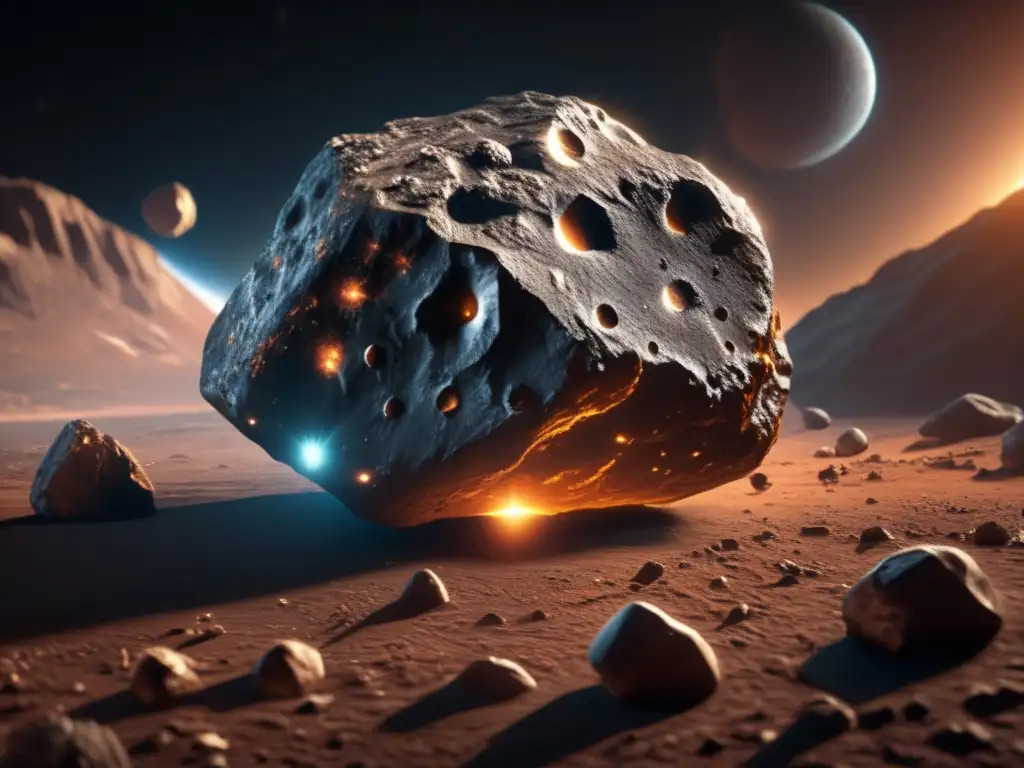Survival In Space: Asteroids And The Possibility Of Life

Introduction
Asteroids are small rocky objects that orbit the sun, often found in the asteroid belt between Mars and Jupiter. They have become a popular topic of conversation in recent years as human exploration of space has become more common. Asteroids have the power to impact our planet and cause massive destruction, but they also have the potential to support life. In this article, we will explore the possibility of life on asteroids and the challenges of surviving in space.
The Importance of Water on Asteroids

Water On Asteroids
One of the most important factors in determining the potential for life on an asteroid is the presence of water. Despite their small size, many asteroids contain significant amounts of water. In fact, scientists believe that some asteroids contain more water than all the Earth's oceans combined. Water can be valuable for supporting life and could potentially be used as a resource for astronauts exploring space.
The Challenges of Accessing Water on Asteroids
Accessing this water, however, is not an easy task. Asteroids are largely devoid of atmosphere, so any water on the surface is likely to quickly evaporate or freeze. Additionally, the traditional methods of harvesting water on Earth, such as drilling and pumping, may not be effective on the surface of an asteroid. Scientists are currently developing innovative technologies that could make it possible to extract water from asteroids, but this is still a major challenge.
The Potential for Microbial Life on Asteroids
Despite the difficulties of accessing water on asteroids, there is still a possibility that some asteroids could support microbial life. Some researchers believe that bacteria could survive dormant on the surface of an asteroid for millions of years, waiting for the right conditions to occur. This theory is based on the fact that bacteria have been known to survive in incredibly harsh environments, such as deep sea vents and hot springs.
The Challenges of Surviving in Space

Solar Radiation and Cosmic Rays
One of the biggest challenges of surviving in space is the intense radiation from the sun. This radiation can damage DNA and increase the risk of cancer and other diseases. Additionally, cosmic rays from outside our solar system pose an even greater threat to astronauts. Shielding from this radiation is a major challenge that must be addressed in order to enable humans to safely explore space.
Maintaining Life Support Systems
Another challenge of surviving in space is maintaining life support systems. On Earth, we rely on a complex network of systems that provide us with air, water, and food. In space, all of these systems must be meticulously designed and maintained in order to keep humans alive. Additionally, the lack of gravity can cause changes in the human body that could have long-term health consequences.
Psychological Effects of Isolation
Finally, isolation and confinement in space can have serious psychological effects on astronauts. Humans are social creatures by nature, and being cut off from the rest of the world for extended periods of time can be incredibly challenging. Additionally, the lack of sensory input and the monotony of daily life in space can be difficult to cope with.
Frequently Asked Questions

-
Can life exist on asteroids?
While it is unlikely that complex life forms could survive on asteroids, microbial life may be able to survive dormant on the surface for extended periods of time.
-
What is the biggest challenge of surviving in space?
The intense radiation from the sun and cosmic rays from outside our solar system pose a significant threat to astronauts.
-
How do scientists plan to access water on asteroids?
Scientists are currently developing innovative technologies to extract water from asteroids, but this remains a major challenge.
-
What are the psychological effects of isolation in space?
Isolation and confinement in space can have serious psychological effects on astronauts, including feelings of loneliness and boredom.
-
What is the potential value of water on asteroids?
Water can be valuable for supporting life and could potentially be used as a resource for astronauts exploring space.
Conclusion
In conclusion, asteroids have the potential to support life, but also pose significant challenges for those who wish to explore and survive in space. Accessing water on asteroids and shielding against radiation are just a few of the many challenges that must be overcome in order to safely explore space. However, with continued research and development, it is possible that humans will one day be able to colonize other planets and establish a permanent presence in space.
We hope that this article has provided you with valuable information on the possibility of life on asteroids and the challenges of surviving in space. Please feel free to share your thoughts in the comments section below and to engage with www.asteroidrealm.com in any way you see fit.
Additional Resources

- Asteroids: Facts and Information About Our Solar System's Rocky Fragments
- Asteroids, Comets, and Meteors - NASA Solar System Exploration
- NASA Asteroid Watch
 Hitching A Ride: How Microbes Could Travel On Asteroids
Hitching A Ride: How Microbes Could Travel On Asteroids Asteroids And The Cosmic Origin Of Life
Asteroids And The Cosmic Origin Of Life The Interstellar Lifeboat: Asteroids And Extraterrestrial Life
The Interstellar Lifeboat: Asteroids And Extraterrestrial LifeIf you want to discover more articles similar to Survival In Space: Asteroids And The Possibility Of Life, you can visit the Asteroids and Extraterrestrial Life category.
Leave a Reply

Articulos relacionados: